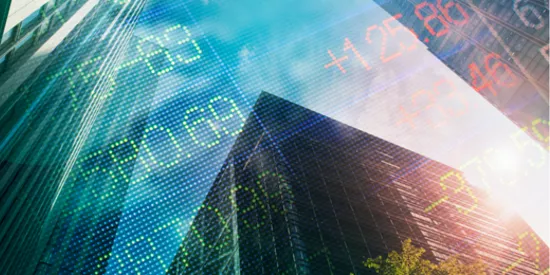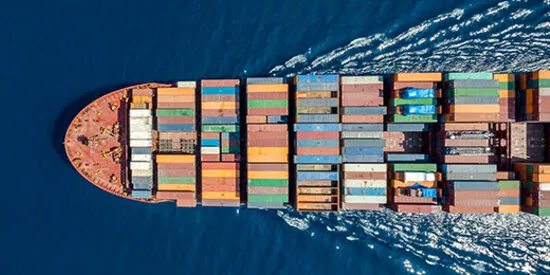
Global warming: banks on the front line to support the energy transition
Véronique de Bellefon, Marie-Gabrielle de Drouas and Sébastien Halley des Fontaines, respectively Head of CSR for Global Transaction & Payment Services, Positive Impact Structurer and Head of Structured Trade Finance at Societe Generale, describe how the banking sector is promoting the energy transition through its activities and internal policies.
In a world where economic development has become inextricably linked to environmental and social issues, it is now paramount to take them under consideration. As the leading financier and supporter of the economy, the banking sector is well aware of its responsibility and its driving role in the fight against global warming in order to support a just and inclusive energy transition.
Numerous banking initiatives
In 2015, many banks, including Societe Generale, committed to limiting global warming to the 2°C target set by the Paris Agreement. That was followed by other initiatives and alliances which Societe Generale helped found and in which it actively participates, particularly within UNEP-FI. In 2018, it signed the Katowice climate package aimed at developing an open source methodology for aligning credit portfolios with the objectives of the Paris Agreement by sector; in 2021, it joined UNEP-FI's Net-Zero Banking Alliance and, alongside other institutions, pledged to align its portfolios with global carbon-neutral trajectories by 2050 with the ambitious goal of keeping global warming below 1.5°C. These commitments confirm Societe Generale's role as a leader in sustainable finance and the energy transition, and attest to its resolve to remain on the front line. It also shows that the bank embraces a spirit of teamwork and sharing – driven by its belief in the power and the need to act as a coalition given the scale of the issue and the climate emergency – at a time when the financial industry must make significant efforts to comply with increasingly stringent regulations, such as the EU taxonomy.
Strong positions regarding the most carbon-intensive sectors
Banks are reasserting their willingness to support the energy transition in many ways, including taking public stances on the most carbon-intensive sectors. With regard to thermal coal, Societe Generale has been pursuing a policy of gradual divestment for several years now, with a final exit from all companies in 2040. Between now and then, corporate clients will have to generate less than 25% of their turnover in this sector in order to receive support from the bank. Societe Generale was one of the first banks in the world to announce a concrete and measurable short-term target to reduce its portfolio linked to oil and gas extraction (10% reduction by 2025).
Supporting our clients in their transition
The key role of banks is also to support their clients ‒ and the economy in general ‒ in their ecological transition, for which financing and investment are the key. Societe Generale also sees this support as a source of opportunity. Alongside this work to align its business portfolios, the bank is developing green, sustainable and responsible corporate and investment banking solutions to support activities that promote the development of renewable energies and energy efficiency. To do so, it is leveraging its expertise in financial engineering and innovation to deliver a comprehensive range of solutions. For example, Societe Generale played a pioneering role in arranging the first Green Trade Finance facilities for clients in Europe, Asia and the Middle East. These facilities were supplemented this year with a Sustainability-Linked Trade Finance offering where, once again, the bank was a pioneer in this market segment. In order to better support its clients' development and their transition to more sustainable business models, Societe Generale launched a training programme for its teams on CSR challenges and products.
In the absence of a recognised international framework for Sustainable Trade Finance, Societe Generale chose to roll out its own framework internally. The bank's ESG offerings are based on a robust eligibility framework founded on the EU taxonomy that integrates both the DNSH (Do No Significant Harm) principle and the minimum social safeguards. Whenever the EU taxonomy, our sector-specific knowledge/policies or our environmental and social analyses reveal potential negative impacts related to a client's direct activity or in its supply chain, the review includes a detailed assessment of how our clients manage these potential negative impacts based on discussions with them.
This unique approach is all the more important as new regional taxonomies and regulations are implemented, some of which can differ from the requirements of the EU Taxonomy for sustainable activities. Expertise and access to high-quality information are therefore crucial to avoid any chance of greenwashing or reputational risk for the bank and its clients.
All hands on deck
In addition to their activities, and in the interest of setting a good example, it is also critical for banks to consider their own CSR issues. In order to improve its energy efficiency,
Societe Generale sets itself the goal of reducing its greenhouse gas emissions by 25% per occupant by 2020. It met that target as soon as 2019.
Societe Generale jointly developed an environmental strategy for its real estate portfolio aimed at improving the energy performance of its buildings; signed the Sustainable IT Charter established by the Institut du numérique (Sustainable IT Institute), of which it is a founding member; rolled out remote working to limit commutes between home and the office (reinforced in response to the health crisis); and reduced its consumption of paper (establishing a preference for electronic signatures, paperless media, etc.), cups and plastic. From a sales point of view, video-conferencing makes it possible to limit business trips to what is strictly necessary without impacting client relations or quality of service.
For several years now, Societe Generale has had an internal carbon tax that is applied to the Group's various entities based on their greenhouse gas emissions. It is then redistributed to reward the best initiatives to limit the Group's direct environmental impact as part of the Environmental Efficiency Awards. This initiative was presented to other companies, again in the spirit of sharing. In addition, when an employee volunteers for an organisation supported by Societe Generale's "The Future is You Foundation", the bank allows him/her to take up to three working days to devote to it.
Lastly, true commitment to a fair transition has become essential to attracting and retaining talent, including the younger generations, who want their jobs to be more meaningful and better aligned with their values. All this goes to show that it is possible to make a difference and drive progress from within a bank.




